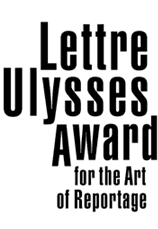
Urvashi Butalia, India
 “It’s clear that conflicts today are very modern conflicts, fought not only with an arsenal of sophisticated weaponry, but also with words and pictures, using the media, with arguments and discussions. They’re battles over territory, sovereignty, homeland, power and above all, control, not only of resources, but also of that age-old thing, the mind.”
“It’s clear that conflicts today are very modern conflicts, fought not only with an arsenal of sophisticated weaponry, but also with words and pictures, using the media, with arguments and discussions. They’re battles over territory, sovereignty, homeland, power and above all, control, not only of resources, but also of that age-old thing, the mind.”
Writer, publisher, feminist, historian. Urvashi Butalia was born in Ambala, India in 1952. She earned a Bachelor in Literature from Delhi University in 1971, a Masters in Literature from the same university in 1973 and a Masters in South Asian Studies from the University of London in 1977.
She began her publishing career working as an editor at Oxford University Press in Delhi, and spent a year in its headquarters in Oxford. Later, she taught a professional course in book publishing at the University of Delhi. In 1982, she joined Zed Books, London, and helped to set up their Women and Gender list, before returning to Delhi in 1984 to co-found Kali for Women, India's first feminist publishing house. Kali was set up to increase the body of knowledge on women in the developing world, to give voice to such knowledge as already exists, and to provide a forum for women writers, creative and academic. Butalia is now the director of Zubaan Books, which she founded in 2003, and which is an imprint of Kali.
Butalia’s writing focuses on the modern history of India, and on partition and oral histories in particular. She has also written on gender, communalism, fundamentalism and media. She co-edited In Other Words: New Writing by Indian Women (1994) and her books include Making a Difference: Feminist Publishing in the South (1995), Women and Right Wing Movements: Indian Experiences (1995), and Speaking Peace: Women’s Voices from Kashmir (2002). In 1998 she wrote the award-winning The Other Side of Silence: Voices from the Partition of India.
The Other Side of Silence has been one of the most influential books in South Asian studies of the past decade. It remained at the top of India’s bestseller list for over six months and won the Oral History Book Association Award in 2001, as well as the Nikkei Asia Award for Culture in 2003. The book is the product of more than seventy interviews Butalia conducted with survivors of the Partition, and emphasises particularly the role of violence against women in the collective experience of the tragedy.
Butalia has been active in the Indian and global women's movements and in international citizen's exchange conferences. She has worked with Samta, an organization responsible for bringing about change in India’s laws on violence against women, dowry and rape and she is a consultant for several national and international organizations. Butalia was awarded the Nikkei Asia Award for Culture in 2003 both for her book, and for her work with women, women’s writing and publishing.
Her writing has appeared in several newspapers including The Guardian, The Statesman, the Times of India and several magazines including Granta, Outlook, the New Internationalist, India Today and Lettre International, Berlin.
Urvashi Butalia speaks several Indian languages (Hindi, Punjabi, Bengali) as well as English, French and Italian. She lives in New Delhi. Currently, she is working on two new books: Mona: A Sort of Life/A Life of Sorts on the life of a eunuch, and The India Reader, an edited volume of essays on India to be published by Duke University Press.
